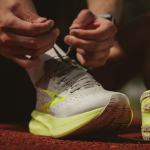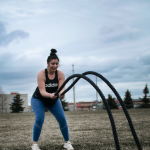You might be asking who is stronger between bodybuilders and powerlifters, two lifting aficionados who are stronger than the typical person.
So, amongst bodybuilders and powerlifters, who is stronger? A person who primarily works like a bodybuilder with the aim of building their muscles will not be as strong as someone who trains for strength with powerlifting-style training.
The communities of bodybuilding and powerlifting do, however, share certain similarities. After concentrating on strength for years, a lot of powerlifters and vice versa try bodybuilding. Therefore, it can be challenging to pinpoint exactly what caused their strength growth.
In addition, powerlifting training’s aspects and ideas are now being incorporated by bodybuilders into their workouts and off-season preparation.
But when it comes to training concepts and priorities, you are much more likely to be at your strongest while you are actively training for powerlifting than when you are actively training for bodybuilding.
Being physically fit is not a requirement to compete in bodybuilding competitions. Many bodybuilders will, however, develop strength along the road.
The only criteria used to evaluate a bodybuilder are how they appear and what they show the judges in comparison to the other competitors that day. Instead of asking them to lift any objects, state how many repetitions they can complete for an activity, or describe their best squat, the judges are searching for conditioning and symmetry.
Because of this, compared to the average powerlifter, bodybuilders tend to concentrate their training on performing a wider variety of exercises at greater rep ranges. Consequently, a bodybuilder’s strength may increase in the 8–10 rep range for an exercise, but that does not necessarily mean that their 1-rep maximum will increase (RM).
Someone needs to severely diet down and cut size in order to get ready for a bodybuilding competition, and doing so will eventually cost you your strength. As a result, even while it doesn’t influence their ability in their chosen sport, bodybuilders frequently lose strength as the cost of achieving a better overall look.
Bodybuilders may not have larger 1RMs than powerlifters, but because of their greater muscular endurance, they may be better able to execute more reps at a given percentage of their 1RM.
How powerful must a powerlifter be?
People of various physical capabilities are welcome to participate in powerlifting. You must be the strongest individual in the room proportional to your body weight if you want to win, though.
The idea of powerlifting is to be the strongest person in the room. As a result, there isn’t really a starting point or upper limit for how strong one should be. However, there are some strength benchmarks that can be used to compare your level of development. Additionally, you need to be better than average if your objective is to win your weight class or to be eligible for competitions at the national or international levels. Your powerlifting total, which is the sum of your best competition squat, bench press, and deadlift, determines how good you are.
The total for advanced to elite female lifters will be between 3 and 4 times their body weight, while the total for advanced to elite male lifters will be between 5 and 7 times their body weight. This is much more than what someone who exclusively concentrates on bodybuilding and has never concentrated on strength will be able to do on the squat, bench, and deadlift.
6 Factors That Make Powerlifters More Powerful Than Bodybuilders
Powerlifters are stronger than bodybuilders for the following 6 reasons:
1. More Powerful
In my opinion, the biggest contributing aspect is that powerlifters just train in a more focused manner for the goal of strength. Although the bodybuilding world appreciates strength, it is not prioritized or concentrated on. You will grow more adept at moving big objects as you move them more frequently. Additionally, you’ll be more likely to be able to move greater weight. Intensity, or how much weight is on the bar and how difficult it is for your body to lift it, is thus a key factor in why powerlifters are stronger than bodybuilders. Check out How To Switch From Bodybuilding to Powerlifting if you’re thinking about switching from bodybuilding to powerlifting.
2. Additional Compound Motions
While many bodybuilders still use the squat, bench press, and deadlift to add muscle, the majority of their training does not concentrate on improving their ability to do the three movements. Exercises that target one muscle group at a time are much more common in bodybuilding, as are movements that powerlifters refers to as “accessory lifts.”
Compound lifts will inevitably improve your proficiency and help you get stronger if you perform them more frequently and with greater intention and focus. While bodybuilders are much more skilled than powerlifters in some areas, they do not devote enough time to compound actions to achieve strength levels equivalent to powerlifters of the same size and training age.
3. Reduced Dieting
Unless they are cutting to fit into a specific weight class, powerlifters do not spend weeks on end in calorie deficits and attempting to shed weight, which is a crucial distinction to make when comparing bodybuilders and powerlifters.
Even if a powerlifter is cutting for a weight class, they often only need to reduce a small percentage of body weight—often simply water weight—less than 8%.
A bodybuilder, on the other hand, sheds a lot more weight than 8%. As the performance draws near, they consume significantly fewer calories than are ideal for effective training and recovery.
As a result, the athlete’s strength frequently declines, which makes it difficult for them to build or sustain strength for a sizable portion of the year.
Check out Female Powerlifting Diet: Complete Guide if you’re a female powerlifter seeking for advice on how to organize your diet.
4. Increased Set Rest
The goal of powerlifting training is to help you use your strength to the fullest extent possible. As a result, bodybuilders usually wait longer between sets than the customary rest periods. While less ideal for anything like muscle building, doing so guarantees that the lifter has recovered sufficiently physically and emotionally to try lifting weights once more.
Powerlifters may exercise at higher intensities without becoming fatigued as a result of the longer rest intervals, which gives us more opportunities to move heavier weight.
5. Reduced Reps
Powerlifters can train much more closely to their genuine 1RM than a bodybuilder, since they take longer breaks and operate at a higher intensity while performing fewer reps. Another element that enables people who place a priority on strength growth to work with greater loads without becoming exhausted is the fact that powerlifters often lift for 1 to 5 reps. Since lower rep work is more specialized for that activity, it is better at enhancing 1RM strength. Powerlifters can therefore develop strength more quickly than bodybuilders by using this technique.
6. Motion Range
Maximizing your leverage is another important aspect of strength, and powerlifters are noted for accomplishing this. For instance, if performing a bench press, a person with good thoracic spine mobility will arch to limit the range of motion. Similar to sumo deadlifts, someone with lengthy legs will perform them to limit their range of motion. This stands in stark contrast to bodybuilders, who are motivated by the goal of gaining muscle and may deliberately widen their range of motion in order to lengthen the period of time a muscle is put under tension during a workout.
A Powerlifter Who Is Stronger Than a Bodybuilder as an Example
Here are some instances of how strength might vary between the two types of athletes of comparable stature to demonstrate the variations between powerlifters and bodybuilders:
I’m not suggesting that if bodybuilders changed their training and concentrated only on strength, they wouldn’t have the ability to become just as strong as powerlifters. It’s also critical to realize that both fields contain outliers.
Simply put, it means that powerlifting training is more focused on building strength, which is typically reflected in how much more weight the majority of powerlifters can lift than the majority of bodybuilders.
Final Reflections
Both bodybuilding and powerlifting are extremely demanding sports that demand a lot of effort, concentration, and commitment. When matched for size and experience, powerlifters will often outperform bodybuilders, since their goals are fundamentally different from those of the latter.
This is because they perform compound motions at higher intensities, fewer repetitions, and longer pauses, and they are much less likely to go on prolonged calorie-restricted diets and exercise to very low body fat levels.






